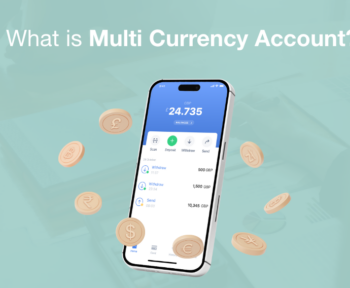Payment systems have transformed because of blockchain payment solutions. Blockchain technology enables trustless peer-to-peer value transfers which could transform traditional payment systems while extending financial services to those without bank access.
Through blockchain technology the payments industry now benefits from digital payment solutions which surpass traditional methods in terms of affordability and convenience and provide global accessibility.
This vision can only be realized if technical challenges are surmounted and adoption becomes widespread. Payment companies such as Jeton demonstrate how blockchain technology can bring forward new payment solutions.
Jeton leads the industry in blockchain payment platforms. Jeton operates as a digital wallet and payment processor which utilizes blockchain technology to enhance money transfer efficiency while extending worldwide financial service availability.
Join us in this article as we explore how blockchain payment solutions help Jeton and other fintech startups enhance cross-border payments while enabling cryptocurrency transactions and delivering merchant payment services.
We will examine the fundamental elements of blockchain payments and study how multiple systems function while comparing their benefits to traditional payment methods. Let’s discover why this emerging technology can revolutionize global transactions and grasp its potential as a transformative force!
What Is Blockchain Payment?
Blockchain payment technology enables digital value exchange between entities through distributed ledger systems. Blockchain payments enable peer-to-peer transactions without third-party intermediaries which traditional electronic funds transfers need.
However, blockchain unconfirmed transactions are a common occurrence in many networks, especially during periods of high activity or congestion. These transactions are broadcast to the network but have not yet been validated or included in the blockchain.
Blockchain technology allows transaction recording while synchronizing information across multiple distributed network computers. All network participants (or “nodes”) store a matching record of transactions which forms the “blockchain” digital ledger.
New transactions get broadcast across the network where they undergo validation through consensus rules before permanent inclusion in blockchain copies.
Through this consensus mechanism network participants can perform value transfers without needing centralized control. When most network nodes verify a transaction as legitimate the network can permanently confirm it without needing users to trust a central authority.
How Do Blockchain Payment Systems Work?
The main blockchain payment networks operate on distinct technical frameworks.
Cryptocurrency Networks
Bitcoin represented the initial broad application of blockchain technology in payment systems. Cryptographic private keys enable users of cryptocurrency networks to manage their digital tokens that exist on the blockchain.
The sender uses their private key to digitally sign a transaction as proof of their coin ownership. Nodes compete to approve transactions which they then add to their blockchain copies through mining procedures.
Permissioned Ledgers
Permissioned ledgers such as Ripple operate with a pre-selected group of validated nodes that require consensus to confirm transactions. This system achieves greater transaction processing speeds at the expense of reduced decentralization.
Financial institutions have the capability to establish private permissioned ledgers which enable instant blockchain-based payments between business partners.
Stablecoins
Stablecoins integrate the predictable value of fiat money with the open nature of public blockchain systems. USD Coin (USDC) retains its dollar value by securing bank deposits or government securities as reserves.
These systems enable quick cross-border money transfers while acting as connectors between traditional fiat money and digital cryptocurrencies.
Payment Channels
Near-instant micropayments become possible through off-chain payment channels by avoiding the need to broadcast each transaction to the main blockchain network.
Payment channels lock funds into a multisignature address which requires both parties to sign for releasing the final balance. Applications such as Lightning Network achieve support for large-scale retail payment processing thanks to this capability.
The core features of blockchain payment networks such as decentralization, transparency, security, and absence of centralized control remain consistent across all implementations to enable new digital value exchange opportunities.
How Is Blockchain Used in Payments?
Several payment sectors are undergoing transformation due to blockchain technology.
Cross-Border Remittances
Cross-border money transfers usually attract high intermediary fees. Payment networks based on blockchain technology offer reduced expenses and faster delivery for international remittance transactions.
Payment companies such as Jeton have introduced immediate international money transfer services through both cryptocurrencies and stablecoins as well as their proprietary payment methods.
Crypto Payments
The growing acceptance of cryptocurrencies enables more merchants to receive direct payments for their products and services. Online crypto payment platforms such as Jeton provide users with easy currency conversion options.
These options are mainly between traditional money and leading cryptocurrencies for digital transactions. Businesses can bypass credit card interchange fees while accessing alternative payment methods through this solution.

B2B Payments
The blockchain technology speeds up business-to-business transactions by automating the processing of invoices and financial transfers between companies.
Supply chain finance receives significant advantages from permissioned ledgers as they enable efficient just-in-time payment transactions between suppliers and buyers. Businesses utilize Jeton platforms to incorporate blockchain-enabled solutions for B2B payments.
Merchant Services
Blockchain payment processors have introduced straightforward methods which allow merchants to process cryptocurrency and stablecoin transactions on their websites.
Jeton delivers plug-and-play payment gateways which allow seamless integration of blockchain transactions during e-commerce checkout processes. Merchants gain access to customer segments that prefer digital currency transactions.
Companies are exploring new applications of blockchain technology within multiple payment domains by capitalizing on distributed ledger features.
These blockchain applications may eventually compete with traditional payment systems because they provide lower fees and faster settlement times while reaching a wider audience.
Why Use Blockchain Payments?
Blockchain networks provide powerful benefits compared to traditional payment systems which fuel their growing adoption.
Speed and Efficiency
Blockchain payments process transactions between counterparties without intermediaries which enables almost immediate settlement.
Blockchain payment systems create better cash flow and working capital management while increasing the speed at which commercial transactions occur. Through permissioned ledgers financial institutions achieve real-time settlement for fund transfers.
Transparency
Each transaction executed on a public blockchain remains visible to all and is permanently documented within the distributed ledger system.
The extensive visibility inherent in blockchain technology fosters trust between participants while simultaneously discouraging fraudulent behaviors. It also simplifies payment reconciliation.
Security
Blockchain uses encryption and cryptographic protocols to protect digital asset ownership and transfers against hacking and manipulation. The exclusive ability to transact funds through private keys ensures protection against unauthorized access when they are managed properly.
Cost Savings
Blockchain payment networks circumvent centralized authorities to minimize transaction fees which is particularly beneficial for cross-border payments that usually face substantial foreign exchange conversion costs. Blockchain payment solutions eliminate credit card interchange fees.
Accessibility
Blockchain technology expands financial inclusion by allowing all individuals with internet access to conduct digital transactions regardless of their financial status or geographic position. The open access model creates equal opportunities for global commerce and remittance transactions.
Emerging blockchain payment solutions provide powerful enhancements to traditional payment methods for both individuals and businesses that want to streamline their payment processes.
What Should Be Considered in the Blockchain Payment System?
Blockchain payment networks boast lower costs and faster transactions but still encounter multiple challenges which demand attention.
- The substantial price swings that most cryptocurrencies undergo hinder their functionality as reliable payment methods. Stablecoins address this risk yet expose users to counterparty risks when the backing assets lose value.
- Public blockchains have a limited capacity for processing transactions per second which prevents them from reaching necessary throughput levels required for mainstream retail use. Layer 2 solutions are contributing to resolving scalability issues but they are still under development.
- The regulatory environment for cryptocurrencies shows significant variation across different regions and remains undefined in numerous areas. Legal uncertainties could undermine the functionality of blockchain payment systems and discourage their widespread use.
- Blockchain technology has a high level of complexity which makes it difficult for consumers to understand essential elements like digital wallets and private keys. Blockchain needs to evolve user-friendly interfaces to become a standard payment solution for everyday people.
- To enable broad blockchain adoption we must build essential support services such as exchanges for cryptocurrencies and merchant processors along with payment gateways and compliance tools to allow seamless integration into current systems.
Jeton is leading new developments in blockchain technology with its user-friendly cross-border money transfer solutions alongside cryptocurrency exchange and merchant payment services.
Our extensive payments experience enables us to provide groundbreaking tech benefits and minimize risks by integrating with existing payment systems.
Blockchain adoption will rely on sustained technical advances, clear regulatory frameworks, and collaboration between new tech developers and existing industry players in the upcoming years.
Mainstream adoption will be accelerated if blockchain payment solutions achieve seamless operation, robust security and cost-effectiveness. Businesses seeking new payment solutions and individuals interested in digital currencies should evaluate platforms like Jeton to discover blockchain’s potential to revolutionize worldwide value exchange.
Challenges in Blockchain Payment Systems
The adoption of blockchain technology for digital payments brings both promising opportunities and significant challenges. “Blockchain payment systems” encounter several significant problems.
- A blockchain network experiences increased processing times and fees as more users and transactions join because larger block sizes become necessary. Mainstream financial services provider Visa handles transaction volumes that many current blockchains are unable to process.
- Technical protocol differences block cross-chain value transfers between different blockchains. The technical differences between blockchains prevent users from executing cross-chain payments.
- Many countries have not yet established clear legal guidelines about how cryptocurrencies can be used for payment transactions. Current legislation does not cover crypto payments and future regulations are still under development. This deters wider merchant acceptance and compliance.
- Blockchain service transactions happen near-instantaneously but require multiple confirmations (usually six or more) for final settlement which leads to longer waiting times when compared to conventional payment options. Sometimes, a blockchain unconfirmed transaction remains pending for an extended period, especially during network congestion.
- The complexities of private keys and transaction hashes alongside wallet addresses create barriers for non-technical users who seek straightforward payment solutions when using blockchain technology directly.
- Network congestion during high usage periods leads to reduced blockchain speeds, increased miner fees, and prolonged unconfirmed transaction times due to network backlogs.

How Can You Address the Challenges of Blockchain Payment Systems?
Although blockchain payment solutions encounter inherent challenges, developers and organizations are working on solutions to address these issues.
- The Lightning Network serves as an off-chain scaling solution which moves transactions through payment channels thus enhancing transaction speed and reducing costs compared to on-chain settlements. Jeton provides service solutions which manage blockchain operations in the background and simplify user interactions.
- Stablecoins pegged 1:1 to real world currencies allow for instant and nearly fee-less transfers between blockchains. Stablecoins provide financial stability and lessen regulatory ambiguity unlike their pure cryptocurrency counterparts.
- Advanced protocols known as Atomic Swaps enable direct token exchanges between incompatible blockchains through coordinated refund transactions which facilitate interoperable cross-chain payments without needing centralized exchanges.
- Payment processors such as Jeton and in-wallet services deliver seamless user experiences for digital fund transactions through user-friendly interfaces while eliminating the need to handle private keys or blockchain complexities.
- Jurisdictions now create regulatory sandboxes which provide frameworks for blockchain projects to innovate and experiment while staying compliant and offering essential guidance.
- Bitcoin and Ethereum improve their systems through soft fork upgrades which enhance scalability and performance while maintaining stability using decentralized consensus models.
The combination of second-layer scaling solutions with stable value transfer systems and better usability layers alongside regulatory coordination enables blockchain to resolve its limitations and establish itself as a mainstream digital value exchange infrastructure.
Prominent companies such as Jeton utilize evolving blockchain technologies to provide user-friendly payment solutions.
What Payment Methods Does Blockchain Accept?
Blockchain payment processors and digital wallets from companies like Jeton allow users to select from various funding sources and transfer methods.
- Users can conduct bank transfers through direct deposits and withdrawals to their accounts across the world which enables straightforward fiat onboarding and offboarding through local banking systems.
- Users can generally use credit and debit cards to both add funds to their accounts or wallets and to make purchases. Card networks usually impose higher charges compared to bank transfer fees.
- Through their wallet interface, innovative platforms like Jeton allow users to buy and sell top digital assets and perform both crypto-to-crypto and crypto-to-fiat exchanges.
- Popular regional e-money services that function as e-wallets integrate with blockchain processors, facilitating seamless cross-network fund transfers.
- Businesses can deliver cross-border payments to contractors and affiliates via low-cost blockchain rails which include automatic conversion to local currencies.
- Through fast blockchain rails and plenty of access points migrant workers can now send their pay home in real-time with low-cost remittance options.
- Certain wallets work alongside crypto exchanges to enable users to buy digital tokens and trade crypto market pairs.
Blockchain payment networks extend existing funding alternatives and enable seamless currency trading between fiat money and digital assets through unified platforms such as Jeton. The adaptability of these services ensures their readiness for future payment trends.
Is Crypto Payment Safe?
Cryptocurrency payments offer distinct security benefits compared to traditional payment methods.
- A crypto payment becomes permanent upon blockchain confirmation since the sender lacks chargeback reversal capabilities. This provides finality preferred by many merchants.
- Cryptocurrency enables direct peer-to-peer transfers without storing sensitive personal information centrally by processors.
- Crypto wallets protect funds through cryptographic private keys since secure storage makes unauthorized access impossible even if the wallet suffers a breach.
- The public blockchain permanently records transactions in a way that eliminates double-spending and data manipulation threats present in centralized databases which are prone to hacking and fraud.
- Services such as Jeton provide user-friendly account names and email addresses instead of complex numeric and alphabetic strings for recipient identification to enhance usability without reducing security measures.
- Advanced wallets make it mandatory to use multiple private keys before allowing withdrawals which safeguards significant holdings even when a single private key gets lost or stolen.
Cryptocurrency transactions share the same inherent risks typical of digital assets. Secure management of private keys and regular backups can prevent fund losses from mistakes or theft.
Jeton functions as a secure payment processor offering extra protection layers for cryptocurrency transactions on its regulated platforms. Blockchain networks offer a foundational security level through immutable transparency which traditional payment systems lack when best practices are implemented.
Can Blockchain Transactions Be Reversed?
Blockchain transactions which are confirmed “on-chain” become irreversible according to their fundamental structure. Despite the general irreversibility of blockchain transactions, some off-chain scenarios may permit payment reversals under particular circumstances.
- The blockchain state change from a transaction within a block that gets removed from the canonical chain through reorganization can be undone. The risk becomes substantially lower after transactions receive several confirmations.
- Some regulated exchanges will issue refunds for unauthorized transactions if they find merit in the user’s claim after conducting an investigation. Merchants should not accept payments that only have zero confirmations because of this concern.
- Through contentious network upgrades Bitcoin can hard fork to specifically reverse transactions from hacked accounts in rare situations.
- Exchanges freeze or reverse funds connected to illegal activities when government orders demand compliance with Anti-Money Laundering (AML) rules.
Jeton is essential as it develops user-friendly blockchain solutions to harness its full capabilities while payment processes advance. Jeton offers a variety of funding choices and global access while working with major cryptocurrency networks and merchant payment tools to deliver a secure and borderless system for moving both crypto and fiat money in an accessible manner.
Blockchain technology along with wider use of scalable off-chain networks and proper regulation will evolve the payment system into an inclusive financial platform for everyone.
Both individuals and businesses can explore Jeton to benefit from the growing blockchain economy through its seamless and regulated platform.
Jeton brings you seamless blockchain-powered solutions for faster, smarter, and more secure transactions. Open your Jeton account now and manage your payments on the go.
Download the Jeton App on Google Play or the App Store and take control of your digital finances—wherever you are!


